You are using an out of date browser. It may not display this or other websites correctly.
You should upgrade or use an alternative browser.
You should upgrade or use an alternative browser.
Russia's Invasion of Ukraine (Official Thread)
- Thread starter newarkhiphop
- Start date
More options
Who Replied?Yooo 
UK stepping up...

UK stepping up...
ADevilYouKhow
Rhyme Reason
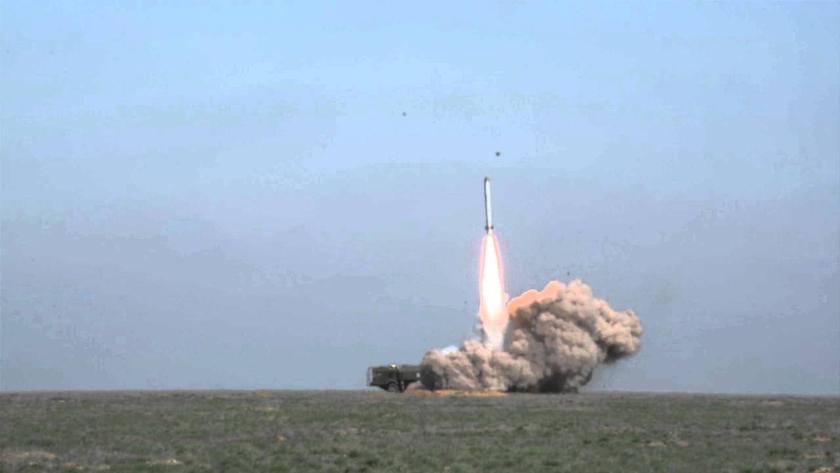
Kamikaze drones have attacked one of Russia's largest factories producing microelectronics for Pantsir-S1 air defence systems and Iskander missiles, in which tens of millions of dollars have been invested
On 7 September 2023, the Russian Federation was attacked by drones. The Silicon El plant came under attack.
Cool
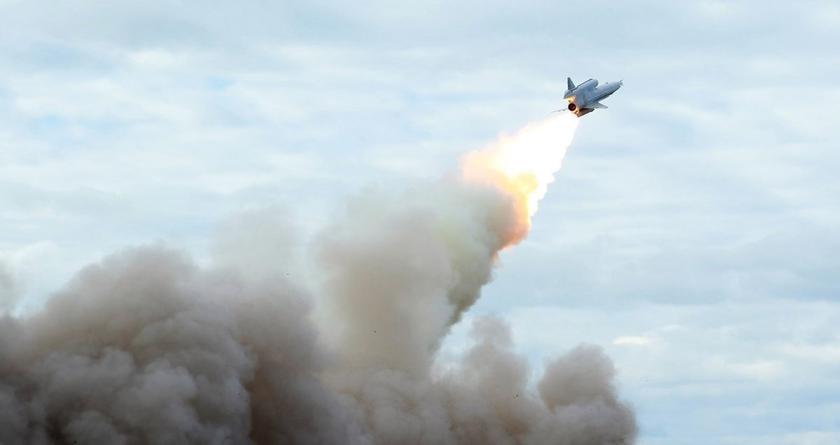
Russia has officially confirmed that a Ukrainian Tu-141 drone modified into a missile, damaged 3 Tu-22M3 strategic bomber-missile carriers
New information about a strike on the Dyagilevo airfield in Russia has resurfaced today. The details of the attack were revealed by Russian media after studying the materials of the Ministry of Defence and counterintelligence of the Federal Security Service of the Russian Federation.
Very cool
Last edited:
ADevilYouKhow
Rhyme Reason

After Prigozhin’s Death, a High-Stakes Scramble for His Empire (Published 2023)
A shadowy fight is playing out on three continents for control of Yevgeny Prigozhin’s sprawling interests as head of the Wagner mercenary group. The biggest prize: his lucrative operations in Africa.
A shortage of land mines for deep, dense minefields forced Russian troops to put down irregular ones, creating new problems for Ukraine: report
Russian forces tried to quadruple the size of the minefields, but it didn't always go as planned. The irregularity has caused headaches for Ukraine.
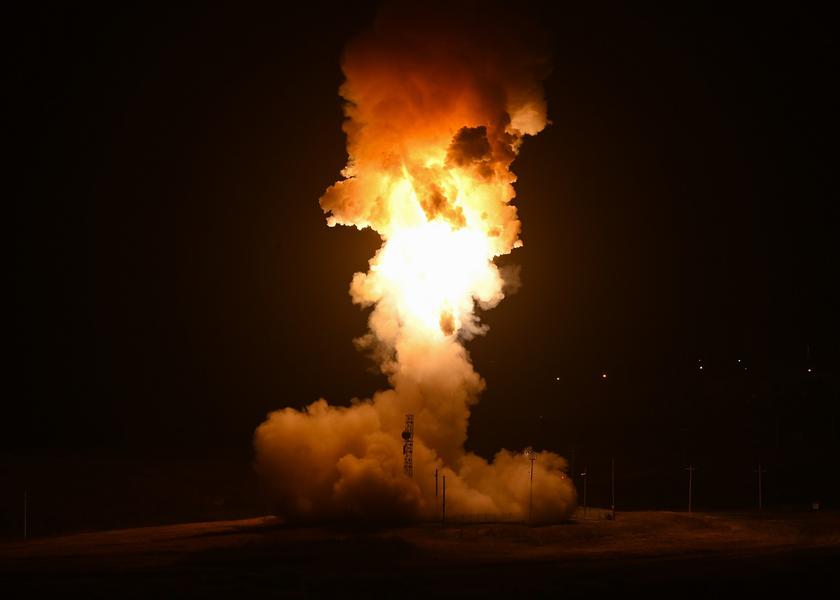
The US launched a Minuteman III intercontinental ballistic missile to demonstrate the readiness of nuclear forces
The United States has tested an intercontinental ballistic missile Minuteman III. This was reported by the US Air Force Global Strike Command.
:quality(70)/cloudfront-us-east-1.images.arcpublishing.com/archetype/LSYMPNUZTFB3NEBHLA6SVULE3M.jpg)
US manufacturers eye Javelin anti-tank missile production in Poland
The anti-tank weapon has been hailed on social media as crucial for Ukraine's defense against Russian invaders.
Last edited:
Pull Up the Roots
Veteran
Aren't you a white dude from Boston?Damn, you got me!
I'm not sure why you're so upset that a private individual/company isn't doing your governments bidding...shyt not even your own government but the Ukrainian governments bidding. You're really out here pretending Elon should ignore the collateral damage while committing an act of war on behest of a 3rd party
88m3
Fast Money & Foreign Objects
wish it was that simple
they've been fukking up a lot lately though
ADevilYouKhow
Rhyme Reason
NOELREPORTS 🇪🇺 🇺🇦 (@noelreports@mstdn.social)
The US is likely to send Ukraine long ATACMS according to U.S. officials. "They are coming," said one official who had access to security assistance plans. The official noted that, as always, such plans are subject to change until officially announced...
Finally
ADevilYouKhow
Rhyme Reason
NOELREPORTS 🇪🇺 🇺🇦 (@noelreports@mstdn.social)
Two months after the United States shipped an initial tranche of cluster munitions to Ukraine to ensure its troops did not run out of ammunition, three American officials said the Biden administration is planning to send more, and soon...
Heart warming
ADevilYouKhow
Rhyme Reason
NOELREPORTS 🇪🇺 🇺🇦 (@noelreports@mstdn.social)
In the US Senate, they expect that the upper chamber of parliament will approve additional funding for Ukraine in the amount of $24 billion by the end of September, according to Mitch McConnell, the leader of the Republican minority in the Senate...
ADevilYouKhow
Rhyme Reason
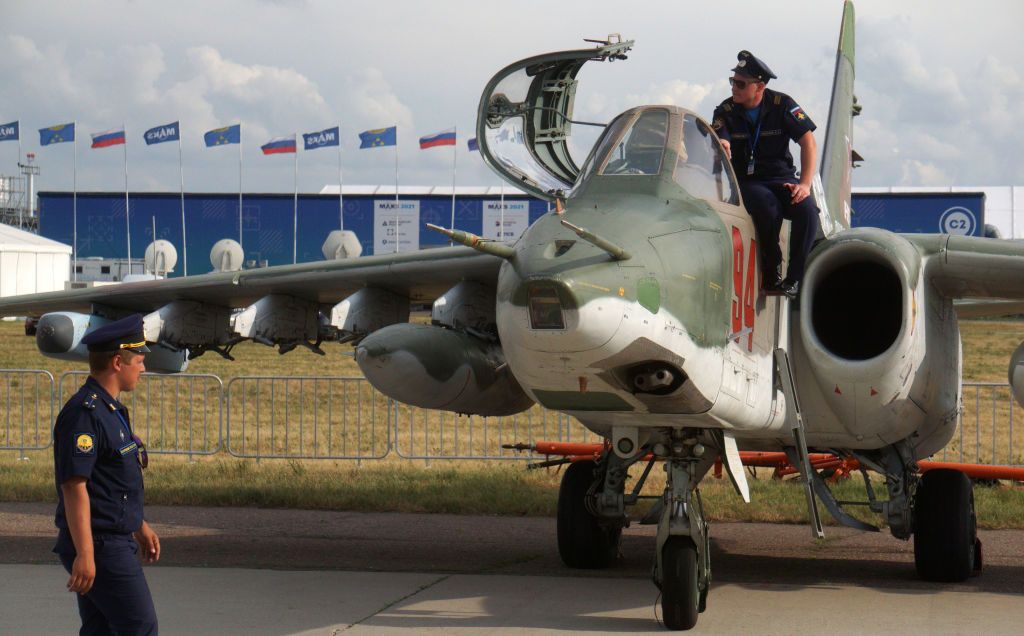
Monitoring group: Russia withdraws almost all military aircraft from Belarus
The Russian Air Force has withdrawn almost all of its aircraft stationed in Belarus, leaving behind only one Su-25 attack plane, the monitoring group Belarusian Hajun reported on Sept. 8. According to the anti-government group, Russia pulled back its aviation group on Aug. 5.
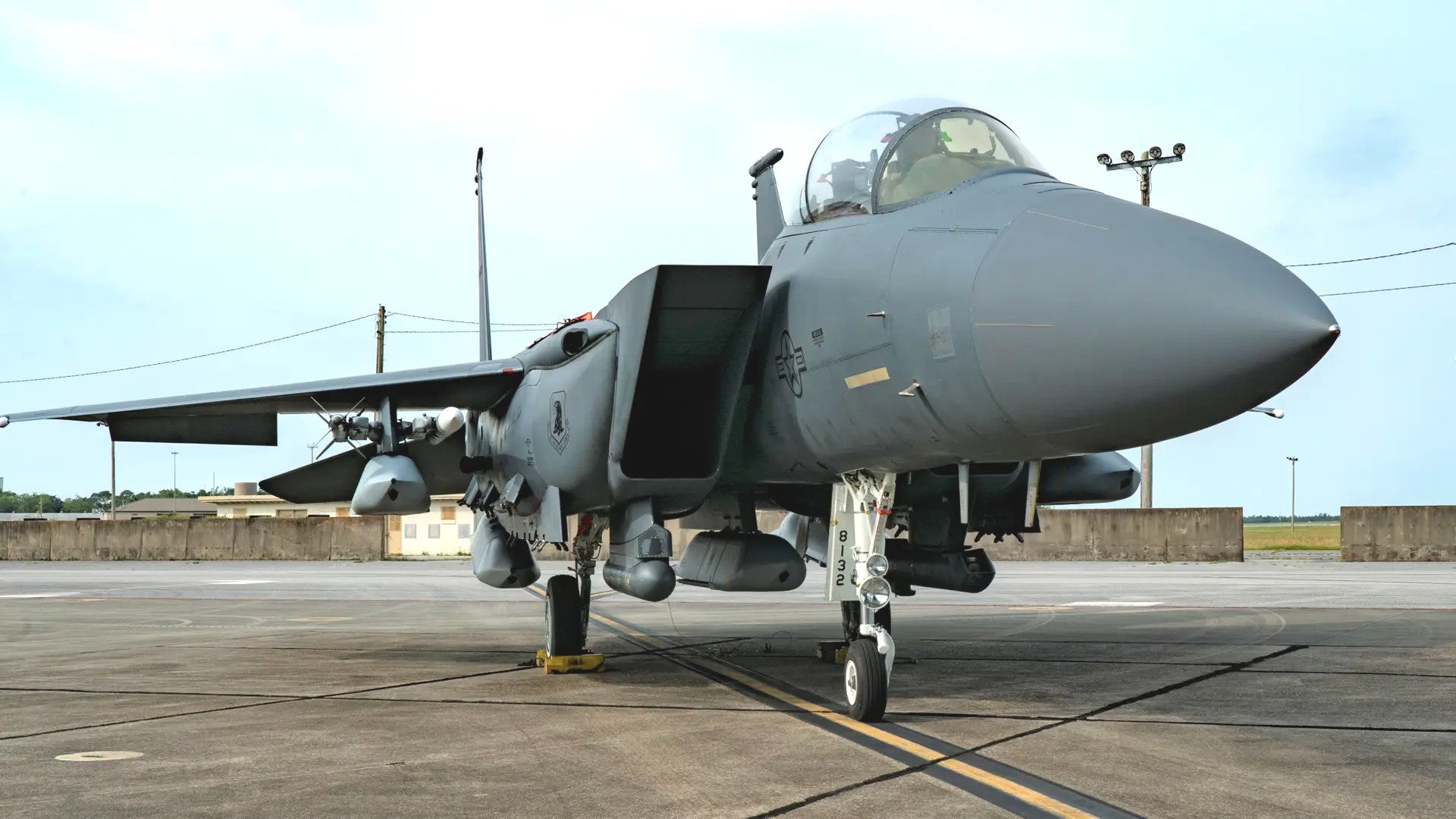
Poland Eyeing F-15EX Buy Amid Weapons Buying Spree
The F-15EX Eagle II would join a future Polish Air Force fighter fleet that includes F-16s, F-35s, and FA-50s.
Aren't you a white dude from Boston?
Confirmed
So you're just commenting on a thread that you didn't bother to watch the vid in OP?
I guess you're just using this as an opportunity to hate on Boston and white people. Carry on..

Vietnam Chases Secret Russian Arms Deal, Even as It Deepens U.S. Ties
Defying U.S. sanctions, a Vietnamese government document lays out a plan to buy Russian weapons, which officials see as a way to upgrade its military as a hedge against China.
Vietnam Chases Secret Russian Arms Deal, Even as It Deepens U.S. Ties
Defying U.S. sanctions, a Vietnamese government document lays out a plan to buy Russian weapons, which officials see as a way to upgrade its military as a hedge against China.
Sept. 9, 2023, 6:57 a.m. ET
Joe Biden, smiling and wearing a blue suit, walks down steps from an airplane at night.
President Biden arriving in New Delhi on Friday for the G20 summit, ahead of his trip to Vietnam.Kenny Holston/The New York Times
Sign up for The Interpreter newsletter, for Times subscribers only. Original analysis on the week’s biggest global stories, from columnist Amanda Taub.
When President Biden is greeted by Vietnamese officials in Hanoi on Sunday, he will be celebrating the prospect of adding another friend in Asia to a coalition that his administration hopes will side with American interests rather than China’s and Russia’s.
During Mr. Biden’s visit, the two nations will underscore their commitment to “increase peace, prosperity, and stability in the region,” a White House press statement said. Nguyen Phu Trong, the top Vietnamese leader, is expected to confer upon the United States an upgrade of strategic ties. The Biden administration has reciprocated early, glossing over the Communist Party of Vietnam’s intensifying human rights crackdown.
But even as the United States and Vietnam have nurtured their relationship over recent months, Hanoi is making clandestine plans to buy an arsenal of weapons from Russia in contravention of American sanctions, an internal Vietnamese government document shows.
The Ministry of Finance document, which is dated March 2023 and whose contents have been verified by former and current Vietnamese officials, lays out how Vietnam proposes to modernize its military by secretly paying for defense purchases through transfers at a joint Vietnamese and Russian oil venture in Siberia. Signed by a Vietnamese deputy finance minister, the document notes that Vietnam is negotiating a new arms deal with Russia that would “strengthen strategic trust” at a time when “Russia is being embargoed by Western countries in all aspects.”
For Vietnam, the idea makes a certain sense. Once one of the world’s top 10 arms importers, Vietnam has long depended on Russian weaponry. The United States’ vow to punish nations that buy Russian weapons has roiled Vietnam’s plans to revamp its military and create a tougher deterrent to Chinese encroachment on its maritime borders in the South China Sea.
Yet by developing its secret plan to pay for Russian defense equipment, Vietnam is stepping into the center of a larger security contest that is steeped both in Cold War politics and the hot war of the moment, in Ukraine.
A large white military ship on open water. On the side it says “China Coast Guard.”
A Chinese ship patrolling in waters near the Spratly Islands, a disputed archipelago in the South China Sea, in April.Ted Aljibe/Agence France-Presse — Getty Images
American diplomatic officials did not respond to requests for comment about the prospect of the arms deal.
Hanoi is adept at dancing between world powers. But its pursuit of a Russian arms deal undercuts its outreach to the United States. And it shows the risks of an American foreign policy that forces countries to make a binary “us or them” choice.
“I feel in some ways that America has unrealistic expectations of Vietnam,” said Ian Storey, a senior fellow at the ISEAS-Yusof Ishak Institute in Singapore and author of an upcoming book on Russia’s relations with Southeast Asia. “I’m not sure that they fully understand how sensitive Vietnam’s relationship with China is and how deep their relationship with Russia is. Misunderstanding these things could get America burned.”
Once again, Vietnam’s strategic positioning — dominated by China to the north, bound to Russia by history and, most recently, courted by the United States — has fashioned this Southeast Asian nation of 100 million people into a geopolitical fulcrum. And once again, Vietnam, a country that within a quarter-century repelled three invaders — France, the United States and China — is hoping to stay clear of a superpower showdown and forge its own path.
Building an Arsenal
The Ministry of Finance document sets out a detailed plan for how the Ministry of National Defense would pay for Russian weapons. To avoid American scrutiny, money for Russian arms would be transferred within the books of a Russian-Vietnamese joint venture called Rusvietpetro, which has oil and natural gas operations in northern Russia.
“Our party and state,” the document says, “still identify Russia as the most important strategic partner in defense and security.”
Two months after the Ministry of Finance proposal was internally circulated, Dmitri A. Medvedev, the former Russian prime minister and current deputy chairman of Russia’s Security Council, made a quiet trip to Hanoi. The visit was barely covered in Vietnam’s state media, but the Vietnamese officials say he was there to firm up the defense deal. One Vietnamese official put the terms of a new arms agreement with Russia at $8 billion over 20 years.
Dmitri A. Medvedev and Vo Van Thuong stand side by side, shaking hands and looking forward. They are flanked by flags of Russia and Vietnam.
In a photo provided by Russian state media, Dmitri A. Medvedev, a former prime minister of Russia, greets President Vo Van Thuong in Hanoi, Vietnam, in May.Yekaterina Shtukina/Sputnik, via Reuters
Since the Russian invasion of Ukraine last year, Vietnam has provided cover to its longtime ally. Vietnam has refused to condemn the invasion at the United Nations, and it voted against suspending Russia from the body’s Human Rights Council. At a security conference in Moscow last month, Defense Minister Sergei K. Shoigu of Russia singled out Vietnam as an ideal buyer of the latest in Russian arms.
For its part, the United States has tried to pull Vietnam out of Russia’s orbit. In 2016, Washington lifted a weapons embargo on Hanoi. While no one expected Vietnam to immediately acquire American fighter jets, it was clear that Vietnam would be rewarded as a useful hedge against China. The upgrading of U.S.-Vietnamese strategic ties on Sunday will also make it easier for U.S. allies like South Korea to sell advanced weaponry to Vietnam.
Even before the war in Ukraine exposed problems with some Russian military hardware, Hanoi had begun to diversify, tapping suppliers in Israel and the Czech Republic, among others. Russia’s invasion of Crimea in 2014 forced Vietnam to source frigates in Russia but get key parts for them in Ukraine, an awkward scramble. And Moscow’s need to supply its own war effort has raised questions about whether Russian factories can churn out enough to meet foreign arms orders, too.
